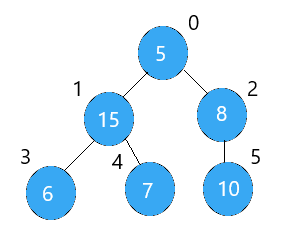Insertion Sort
- Prateek Chauhan

- May 8, 2020
- 2 min read
It is an simple sorting algorithm that builds the final sorted array(or array) one at a time. Here, a sub-lists is maintained which is always sorted.
It is much less efficient on large lists than more advanced algorithms such as quick sort, heap sort or merge sort.
Example:
9, 8, 10, 5, 6
Let us loop for i = 1 (second element of the array) to 4 (last element of the array)
i = 1. Since 8 is smaller than 9, move 9 and insert 8 before 9 8, 9, 10, 5, 6
i = 2. 10 will remain at its position as all elements in A[0..I-1] are smaller than 10 8, 9, 10, 5, 6
i = 3. 5 will move to the beginning and all other elements from 8 to 10 will move one position ahead of their current position. 5, 8, 9, 10, 6
i = 4. 6 will move to position after 5, and elements from 8 to 10 will move one position ahead of their current position. 5, 6, 8, 9, 10
Another Example:
Here is an visual example of insertion sort.
Implementation in C:
// C program for insertion sort
#include <math.h>
#include <stdio.h>
// Function to sort an array using insertion sort
void insertionSort(int arr[], int n)
{
int i, key, j;
for (i = 1; i < n; i++) {
key = arr[i];
j = i - 1;
/* Move elements of arr[0..i-1], that are
greater than key, to one position ahead
of their current position */
while (j >= 0 && arr[j] > key) {
arr[j + 1] = arr[j];
j = j - 1;
}
arr[j + 1] = key;
}
}
// A utility function to print an array of size n
void printArray(int arr[], int n)
{
int i;
for (i = 0; i < n; i++)
printf("%d ", arr[i]);
printf("\n");
}
/* Driver program to test insertion sort */
int main()
{
int arr[] = { 9, 8, 10, 5, 6 };
int n = sizeof(arr) / sizeof(arr[0]);
insertionSort(arr, n);
printArray(arr, n);
return 0;
} Output: 5 6 8 9 10Miscellaneous:
Time Complexity: O(n*2). Learn more about time complexity here.
In-place: Yes
Stable: Yes
.png)



Comments